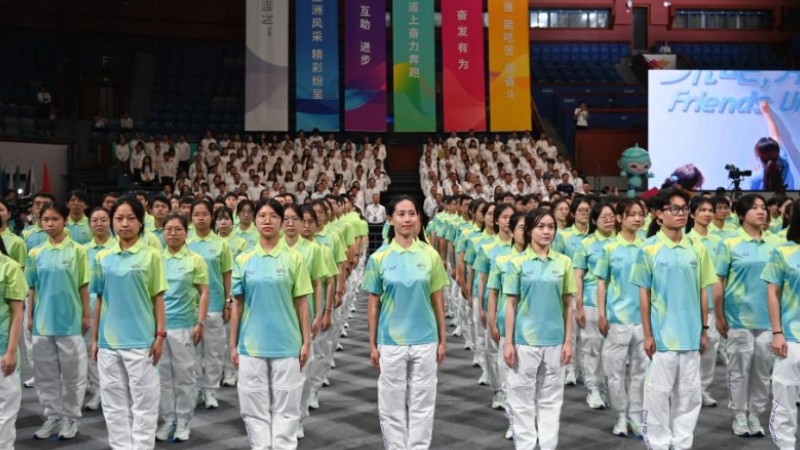China halves stamp duty on stock trading to invigorate capital market
BEIJING, Aug. 28 (Xinhua) -- China halved the 0.1 percent stamp duty on stock transactions effective Monday to invigorate the capital market and boost investor confidence, according to the Ministry of Finance and the State Taxation Administration.
Historically, the stamp duty reduction has significantly boosted the securities market, said He Daixin, a researcher with the Chinese Academy of Social Sciences.
In April 2008, Chinese securities regulators slashed the levy from 0.3 percent to 0.1 percent, and in September that year, the stamp duty was levied unilaterally on the seller, spurring bull runs.
Given the current complex economic situation, he added, the move will help boost market confidence.
China's major stock indices were higher in the morning session Monday, with the benchmark Shanghai Composite Index up 2.3 percent to 3,134.44 points, and the Shenzhen Component Index gaining 2.38 percent to 10,371.23 points at midday.
Cutting the stamp duty is conducive to reducing market transaction costs and easing the tax burden on investors, especially medium and small ones, said Zhao Xijun, a finance professor with Renmin University of China.
Data showed more than 220 million individual investors in China's stock market, accounting for 99.76 percent of the total. Among them, small and micro investors holding shares less than 100,000 yuan (about 13,917 U.S. dollars) accounted for 87.87 percent.
China's stamp tax revenue reached 128 billion yuan in the first seven months of this year. Experts believe that under the current situation of greater pressure on fiscal revenue and spending, the policy signals the country's endeavor to stimulate market vitality.
The Chinese authorities' latest move also comes after the Political Bureau of the Communist Party of China Central Committee meeting in late July urged efforts to invigorate capital markets and boost investor confidence. Since then, Chinese regulators have rolled out targeted and substantive measures.
On Aug. 18, the China Securities Regulatory Commission (CSRC) announced a raft of support policies, including cutting transaction fees, developing equity funds and considering the creation of a "green channel" for technology companies that aim for breakthroughs in core technologies.
Along with the stamp duty cut move, the CSRC said on Sunday that China will slow the pace of initial public offerings and further regulate major shareholders' share reductions.
The total size of major shareholders' holding reduction will be managed, the CSRC said, adding that the controlling shareholder or actual controller of a listed company will be unable to reduce their holdings via the secondary market in several scenarios, including when the company sees its stock price drop below its initial offering price, when it has not distributed any cash dividends in the past three years and when cumulative cash dividends are less than 30 percent of the company's average annual net profit of the past three years.
Also on Sunday, the minimum margin ratio of financing for purchasing securities will be lowered from 100 percent to 80 percent in China, effective after shares close on Sept. 8, 2023. The CSRC noted that moderately lowering the minimum margin ratio will help put available funds to good use.
The policy mix will promote a more virtuous cycle of investment and financing and inject more confidence and certainty into the market, said Zhao.
Besides the latest efforts in capital market, the central bank also unveiled measures to bolster the economic recovery. Since August, China has cut the interest rates of the medium-term lending facility, reverse repos and standing lending facility, and China's loan prime rate also saw its second decline this year.
Analysts believe the move will help shore up credit demand and boost consumption and investment growth.
Photos
Related Stories
- China halves stamp duty on stock trading
- Shanghai Stock Exchange STAR 100 Index goes online
- China's STAR market channels more capital to sci-tech innovation
- HKEX announces plans to open London office
- Beijing stock exchange registered with 1 bln yuan capital
- China to specify operation rules for Beijing stock exchange
Copyright © 2023 People's Daily Online. All Rights Reserved.









